A Cancer Warrior Tells Why All of Us Should Get Registered As Bone Marrow Donors
“I hate the term cancer survivor. It automatically assumes cancer is stronger and someone just survived it. I prefer the phrase cancer warrior.”-Aashim Joy
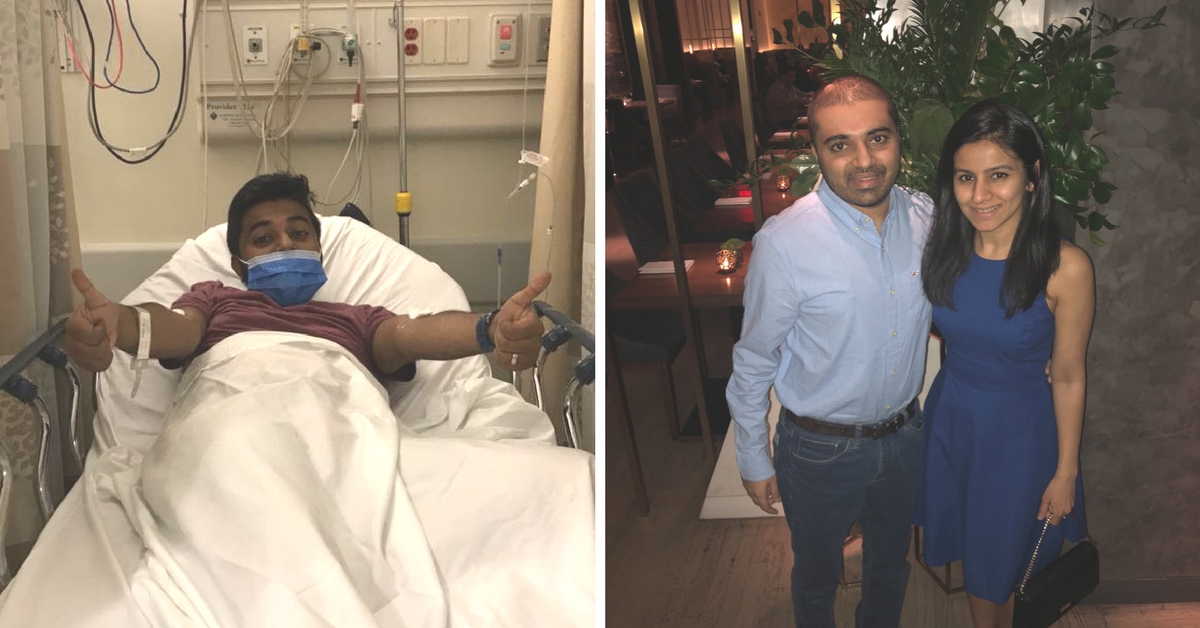
Scrolling through my Facebook feed on an August morning last year, I was stunned to discover that my friend Aashim Joy had been diagnosed with acute lymphoblastic leukaemia (ALL)—a type of cancer of the blood and bone marrow resulting in cancerous blood. Making matters worse was that that the ALL was accompanied by a Positive Philadelphia Chromosome—a specific gene mutation.
Despite the obvious shock and sadness, the Facebook post and photos announcing the news radiated a great deal of positivity. Aashim was all smiles and goofy, getting ready to undergo chemotherapy. That’s the Aashim we all know.
“Thank god, the doctors caught the cancer early, before it had adversely affected my key organs. Despite the obvious shock to my wife Reema, our families and I, the doctors said that it was curable, and it gave us hope,” says Aashim, speaking to The Better India over video call from New York.
Today, Aashim is in remission. Before the ALL diagnosis, the subject of bone marrow donation never really crossed his mind. Since the diagnosis, Aashim, Reema, and their families have been at the forefront of spreading awareness and conducting drives around India and the United States seeking bone marrow donors.
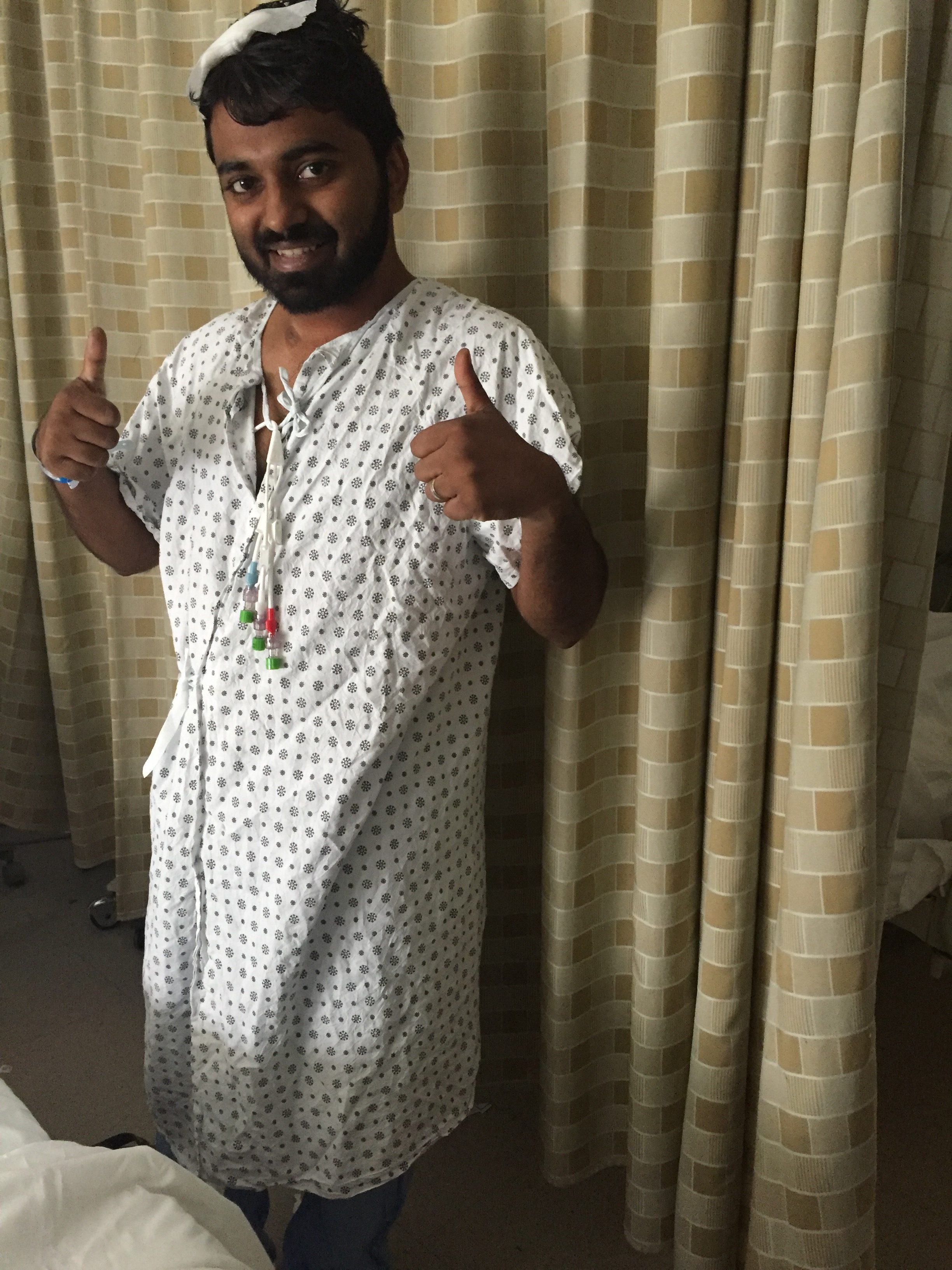
With the able support from Datri, a Chennai-based non-profit which runs the largest stem cell registry in India, the US-based National Marrow Donor Program with their registry ‘Be the Match’ (the only national donor registry in the US) and their recruiter for donors, the Icla da Silva Foundation (ICLA), an American non-profit, a few thousand have registered as donors.
In India, nearly 2500 have registered as donors in the Get Tested for Joy drives across various towns and cities. For a country with only 2.8 lakh registered donors, this is a significant figure.
Life-affirming Joy
I met Aashim Joy in the summer of 2010. On a road trip from Delhi to Leh for the first time, my college friend and I stopped over at Old Manali. Sitting around a table outside our rooms in the cool Manali breeze, our conversation somehow meandered towards Chennai, home to our alma mater.
At another table on the same floor were Aashim and his friend. Overhearing our conversation, Aashim walked towards our table and asked whether we were talking about Chennai. When we responded in the affirmative, he began talking about his alma mater, Madras Christian College. My friend and I soon discovered that Aashim and his friends were also heading towards Leh, and so we decided to take on this journey together.
Since our trip to Leh, I’ve had the pleasure of meeting one of the most life-affirming and joyful (no pun intended) human beings you will ever come across. When he left Delhi for London to acquire his second Masters’ degree in Actuarial Science the following year, we met less often, but would every now and then reach out to each other on social media. It has almost been seven years since we last met in person.
His life would completely change in the UK. Little did Aashim know that on foreign shores, he would meet Reema Singh, the love of his life. The Malayali-Christian boy from Delhi had fallen for a Punjabi-Sikh girl from Hyderabad in London. “I just might sell my story to Bollywood and live off the royalties for the rest of my life,” says Aashim.
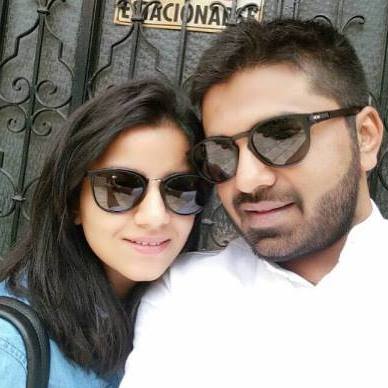
By the end of 2012, he had completed his Masters and returned to India. A couple of months later in February 2013, he left Delhi and moved to Hyderabad for work, which also meant living closer to Reema.
In the following months, they grew closer to each other, and that’s when marriage became a serious prospect. Convincing their parents, however, wasn’t easy. After nearly two years of going back and forth, their families finally acquiesced and decided to bless the union. On July 18, 2016, Reema and Aashim got married in the court of law.
Following marriage, Aashim moved to New York working as an actuarial consultant for the global consultancy major, Deloitte, with Reema in tow. “Going to work every day in the financial centre of the world for a finance guy like me was a dream come true. Even though my wife wasn’t able to work in those initial months due to visa restrictions, we were living it up,” says Aashim.
Darkness descends
Matters, however, took a different turn by the end of May 2017. Aashim began to suffer minor bouts of fever, headaches and nausea. He remembers one particular night at a Detroit casino with his wife, where these symptoms surfaced with great intensity.
After a work assignment on June 7, Aashim and Reema decided to hit the Greektown Casino. At the venue, there was a lot of smoke emanating from cigarettes, and that really began to bother him. “Never in life was I bothered with cigarette smoke, so that was particularly odd. Anyway, we went back to our hotel room, where I threw up, caught a fever, and shivered profusely,” he recalls.
Initially, Aashim didn’t think much of the entire affair. Even though Reema was keen on a doctor’s appointment, he didn’t feel it was worth all the trouble to get one. “Going to the doctor here in the US is a tough thing. It is hard to get an appointment,” Aashim says.
Fast forward to July, and Aashim’s parents were in town for a visit. He had fallen ill again, but after increased pressure from his parents and wife decided to visit a local walk-in/urgent care clinic. They told the medical attendants there of all the symptoms, and a few blood tests were administered.
“It was July 8, when I received a call from the pathology lab of the walk-in clinic. The attendant on the phone asked me to go down to an emergency department of a hospital immediately. When I asked them if I could go later, they said ‘no’ in a rather stern tone,” Aashim recalls.
Even as Aashim and Reema were sitting in the hospital awaiting test results, they were cheerful—taking selfies and sending them out to their friends.
Then the doctors proceeded towards them and said that Aashim could possibly have leukaemia. After the initial shock, he speaks of how the couple broke down at the hospital. This was ten days before their first wedding anniversary. “We had made plans for our anniversary, but then came this devastating news,” says Aashim. However, the doctor assured them that it was curable.
“We caught it early. Had my parents not visited, and put added pressure on me to get myself checked, things could have gotten a whole lot worse. Thankfully, they were there,” says Aashim.
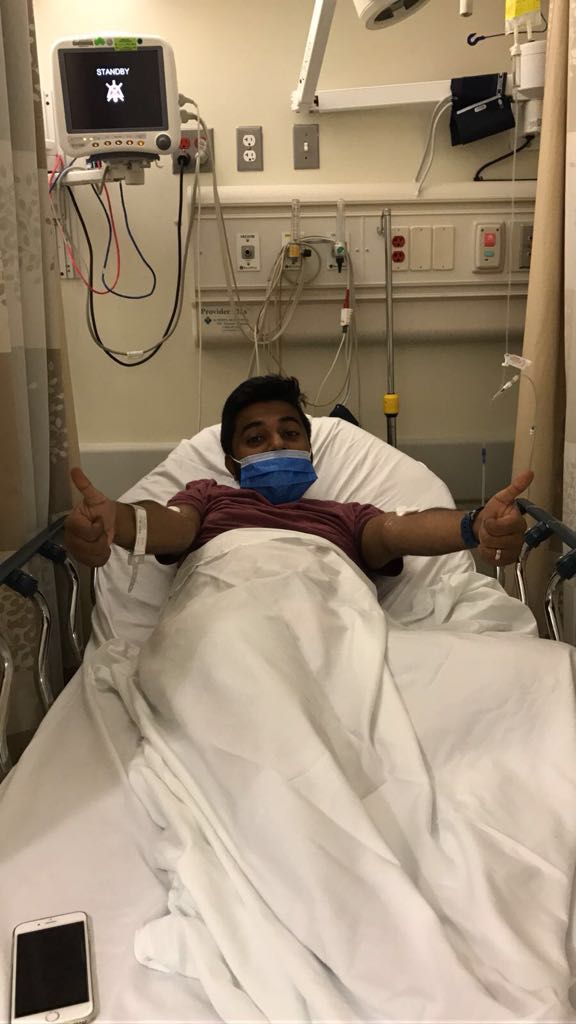
Understanding ALL
Before dwelling further on Aashim’s remarkable journey, it’s imperative to understand ALL. “Acute lymphocytic [or lymphoblastic] leukaemia occurs when a bone marrow cell develops errors in its DNA. The errors tell the cell to continue growing and dividing when a healthy cell would normally stop dividing and eventually die,” says this explainer from Mayo Clinic, an American medical centre.
“When this happens, blood cell production becomes abnormal. The bone marrow produces immature cells that develop into leukemic white blood cells called lymphoblasts. These abnormal cells are unable to function properly, and they can build up and crowd out healthy cells. It’s not clear what causes the DNA mutations that can lead to acute lymphocytic leukaemia,” it goes on to add.
The phrase “acute” in ALL stems from its ability to progress rapidly and create immature, rather than mature blood cells. ALL is commonly found in children, although it occurs in adults as well. The only difference is that in adults the chances of a complete cure are lower.
When the ALL diagnosis was confirmed, Aashim and his family were initially told that a bone marrow transplant might be the only option available.
“The ALL I was diagnosed with was Philadelphia positive, and the chance of relapse is high. Hence, a transplant was the first option initially,” he recalls.
Aashim’s body reacted well to the first cycle of chemotherapy. He went into remission after the first month of intense chemotherapy, and then a lot of doctors suggested that till he found a 100% match, they should continue with the chemotherapy procedure.
“What also helped during the entire procedure was my ability to maintain a positive outlook. A lot of credit for this goes to my family.”
It’s not as if a bone marrow transplant does not come with its significant risks. There is the potential for Graft versus Host Disease (GvHD).
According to Cancer Research UK, “GvHD happens when particular types of white blood cell (T cells) in the donated bone marrow or stem cells attack your own body cells.”
This happens because the donated cells (the graft) see your body cells (the host) as foreign and attack them, adds Cancer Research UK in its explainer.
This could prove fatal for the patient, but with a successful transplant, the chances of relapse fall drastically. Moreover, Aashim and his family hadn’t found a donor yet.
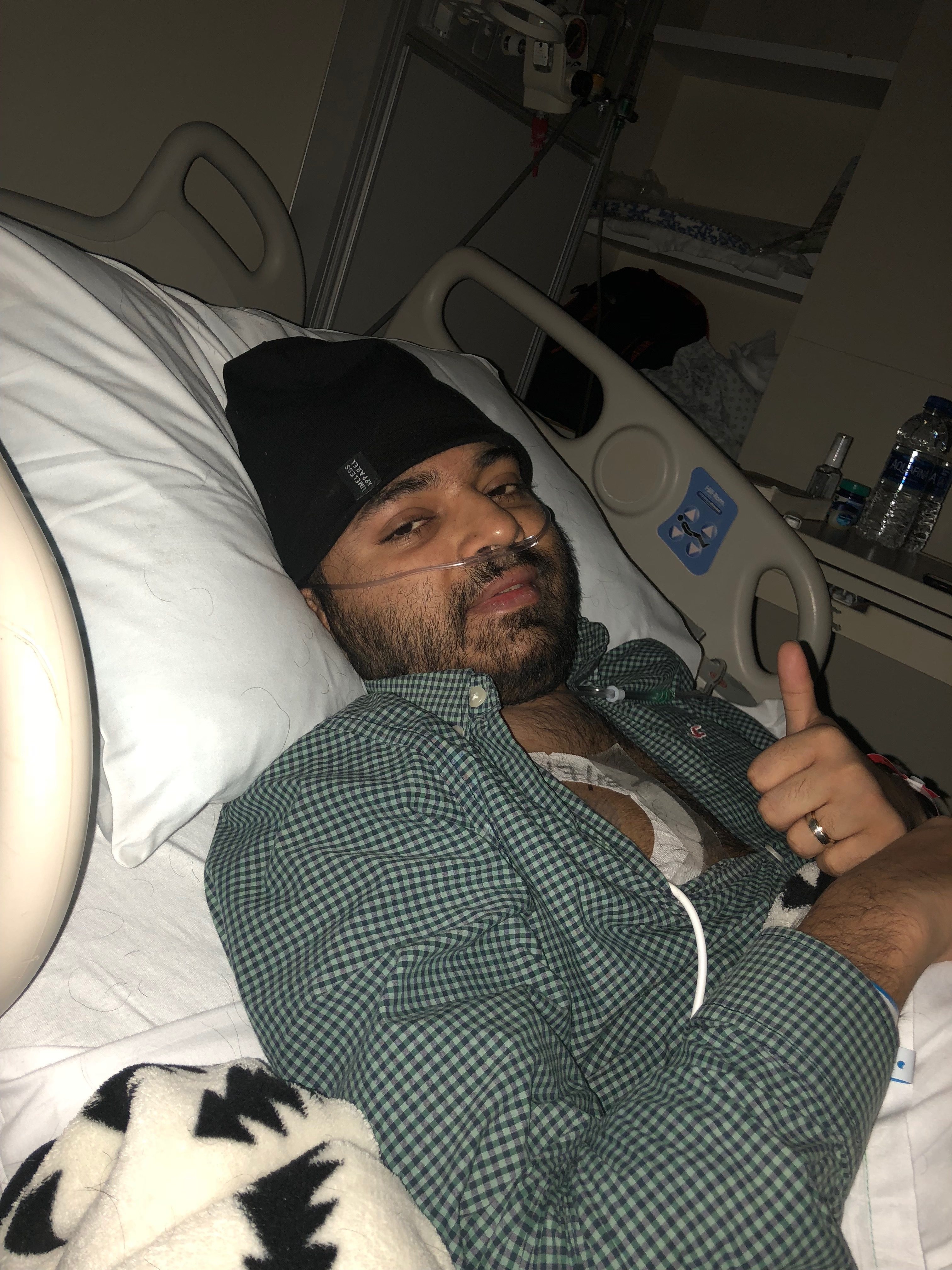
Fighting for his life
After an initial search by the hospital did not throw up any matches in August, Aashim and Reema decided to work with non-profits like ICLA in the United States to run donor drives. An interesting facet of bone marrow transplant is that the probability of a match is higher in one’s ethnicity. Seeing a greater potential for a match in India they decided to approach Datri.
Since approaching Datri and ICLA, there have been more than eight donor drives starting with Perumbavoor in Kerala and moving onto other major Indian cities like Bengaluru, Chennai, Mumbai, Hyderabad and most recently in Delhi.
In the United States, ICLA has helped the Joy family in conducting a drive in Chicago, online registrations, and building-maintaining a Facebook page for the same purpose along with Reema and Aashim. I registered as a donor during the Bengaluru drive on December 2, 2017.
Donating and saving a life
During these drives, Aashim has realised the process of sensitising people to the benefits of registering as a donor and committing to the process is very challenging. “A lot of perceptions need to change,” he says. While Bengaluru and Delhi had a particularly high turnout, with 251 and 287 respectively, it wasn’t the same in elsewhere.
“There are a lot of misconceptions associated with bone marrow transplant, and most folks don’t really feel it’s worth the effort to wake up on a Sunday morning and register as a donor.”
The process of registering and donating for bone marrow transplant is neither painful nor invasive. Moreover, you’re in a position to save someone’s life, even though the probability of finding a match ranges from 1 in 10,000 to 100,000. What could be bigger than saving a life?
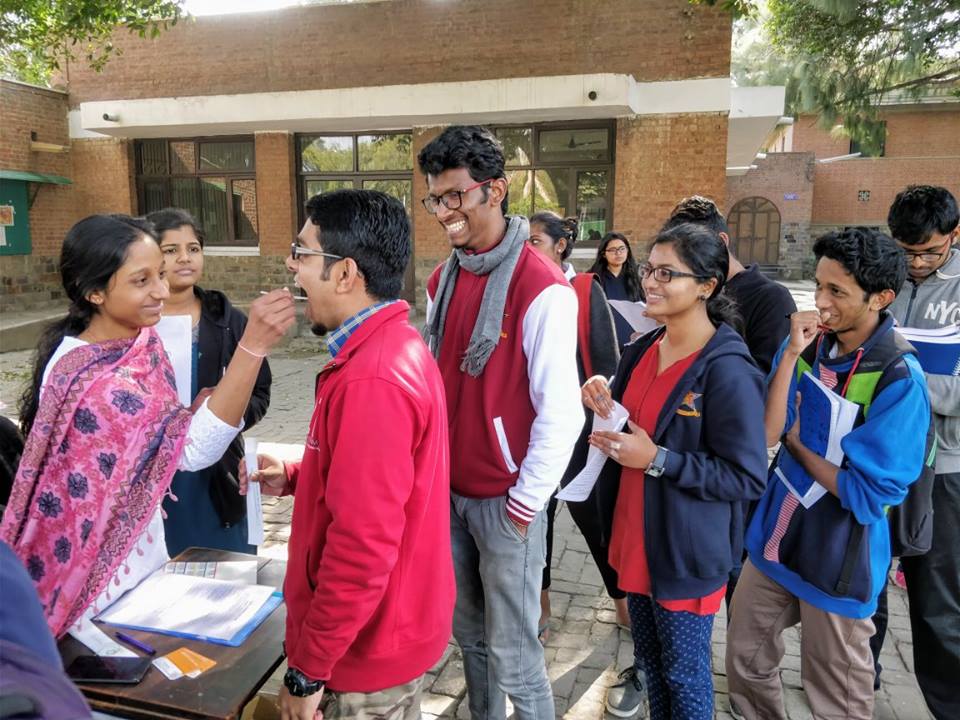
Having said that, Aashim has learnt a few lessons about how to conduct these drives. “If you find affinity groups and conduct drives, it usually tends to work better. Colleges, offices, workspaces, institutions like churches, mosques or temples, and open markets not only give you the space to conduct drives but also the platform to reach and educate many people at the same time,” he says.
Reaching out to individual friends and posting on social media doesn’t generate numbers. With the first phase of these drives over, Aashim hopes for greater numbers in the next set of drives.
Here’s a short video explaining the registration and donation process.
There are also some facts that people need to know about bone marrow donation. For starters, donors aged between 18 and 44 offer the best chance at success for a bone marrow transplant, say doctors. This isn’t meant to discriminate against those who are younger or older but aimed at protecting the donor and providing the best possible results for the patient.
Those under 18 are not sought out for donation because the procedure is entirely voluntary and doesn’t require the consent of parents. For older citizens, meanwhile, the chances of medical complications arising from transplant are higher.
As described in the video above, there are two ways through which you can donate your bone marrow—peripheral blood stem cell donation and bone marrow harvest.
Any medical procedure will entail some risk, but with bone marrow transplant there are rarely any long-term side effects for donors undergoing either procedure. Moreover, the cells in your body regenerate within 4-6 weeks. Also, it’s not as if doctors are extracting a chunk of your bone marrow. Only 1-5% of your marrow is required to save another patient’s life.
Before any procedure, the donor undergoes a full battery of tests to ensure they are healthy and the procedure is safe. You can read more about bone marrow transplant here.
“Getting a committed donor (a match who doesn’t back out) is a real challenge, but by spreading greater awareness people will definitely be more receptive to the idea,” he says.
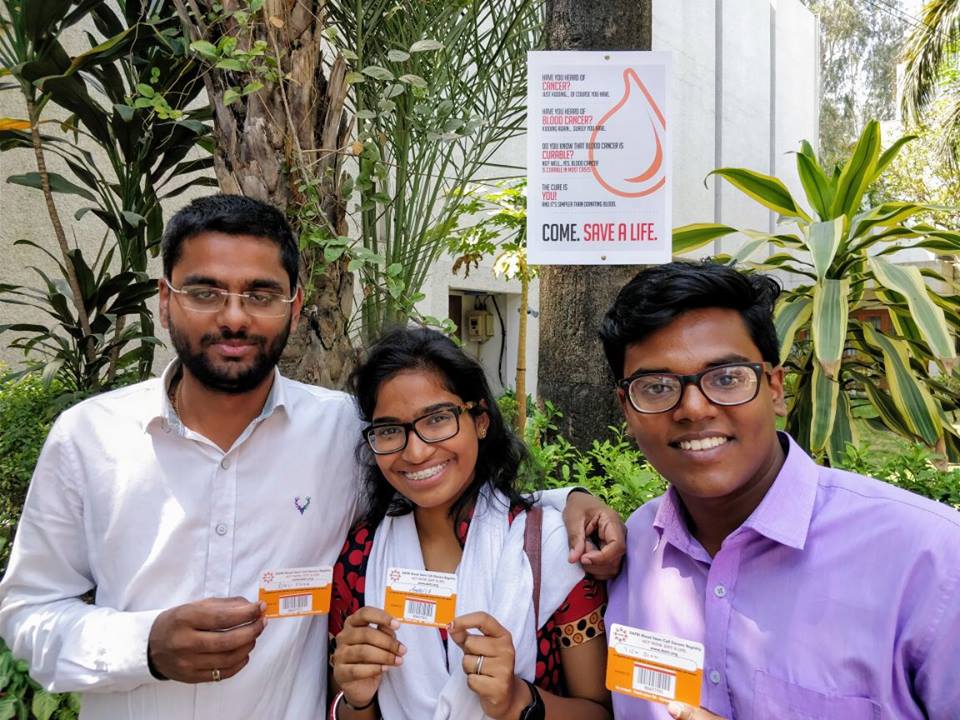
What’s life without family, changing the outlook on life
Through vast segments of our conversation, Aashim speaks fondly about the immense support he has received from his wife Reema, sister Anishka, their parents and extended family.
“The love and care I have received from them throughout this rollercoaster has been overwhelming. Along with Reema, who is living with me in the States, my sister, parents and Reema’s mom constantly take turns to fly into New York and take care of me. You need that sort of support system to get through these moments in your life,” says Aashim with a radiant smile. Having friends who speak to you on a daily basis, play scrabble on the phone, send books and get well soon packages also help immensely.
Family and friends from both sides have also played a critical role in not only generating awareness for these donation drives but conducting them as well. Visit the Get Tested for Joy Facebook page, and you’ll witness words and heartfelt messages of support for him.
The biggest source of strength and support, however, has been his wife, Reema. “She spent two years trying to convince her family about marrying me. My diagnosis coming ten days before our first wedding anniversary had initially devastated her. There were emotional breakdowns, but now she stands besides me like a rock,” says Aashim.
It was Reema who gave him much needed perspective when thoughts often went wandering towards the question of “Why me?” which often arise in such moments.
“Reema told me that we were chosen to spread the word about this debilitating disease and help others suffering from it. As a result of one of our drives, a five-year-old leukaemia patient found a donor. When I found out, I realised that I had never felt this good about myself,” says Aashim.
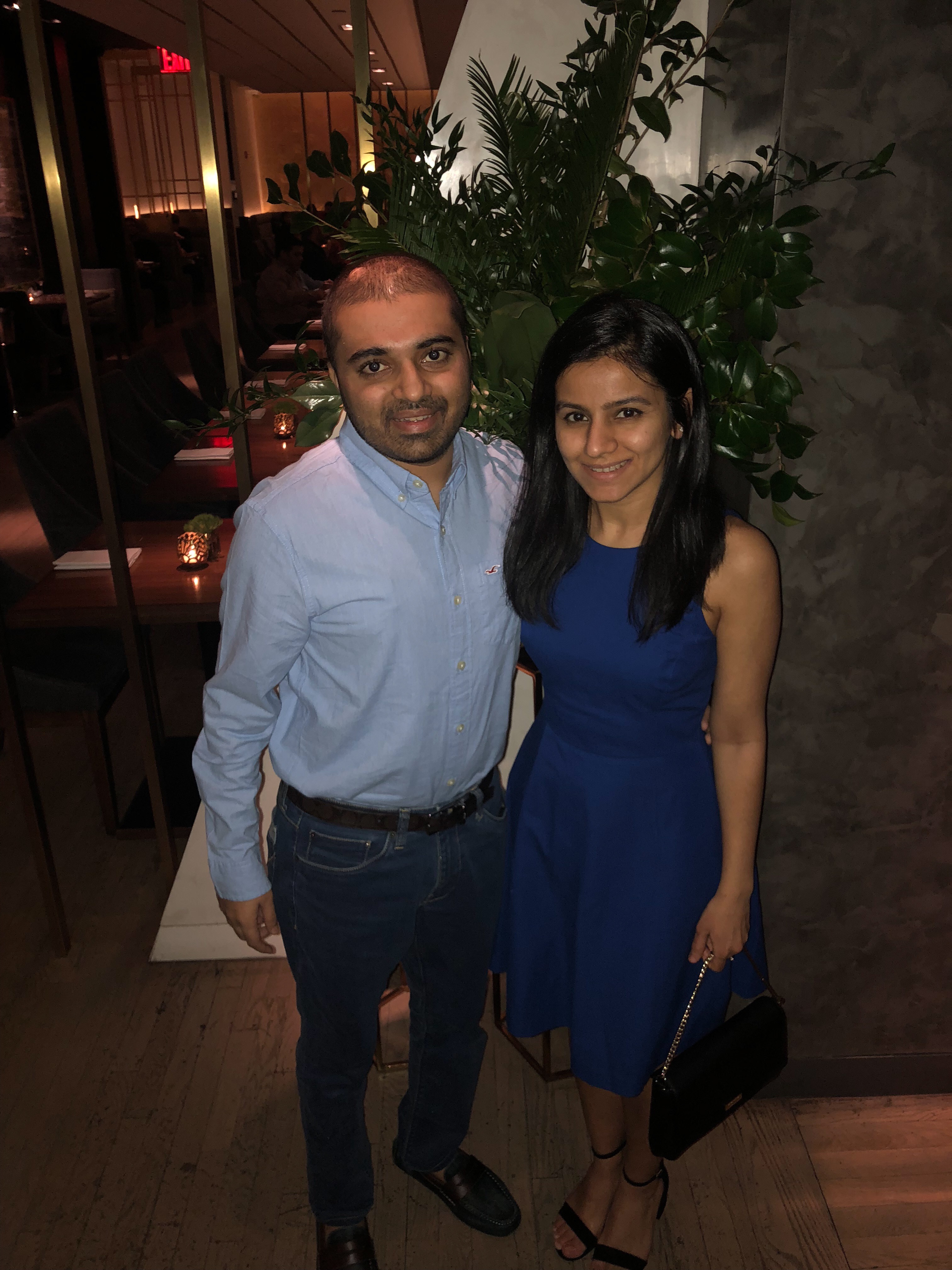
Throughout this entire journey, Aashim tells us that his employer, Deloitte has been extremely helpful, offering him work-disability leave with pay or flexible and reduced working hours. Also, Reema has taken over the financial responsibilities after taking up a job with global financial services giant, Credit Suisse.
More than anything else, however, it is Aashim’s perspective on life that has changed. He’s eating, drinking and living a lot healthier even though chemotherapy has taken its toll. Chatting on Facebook, he tells me that its side-effects have begun to kick in.
Despite the evident pain and suffering, he believes that this entire episode has allowed him to witness life in a completely new light. “The small fights Reema and I used to have earlier seem too petty compared to these moments where we are fighting for my life. Our fights today are just five minutes long,” he laughs.
Please register as a donor and save a life.
Unable to view the above button? Click here
Like this story? Or have something to share? Write to us: [email protected], or connect with us on Facebook and Twitter.
NEW: Click here to get positive news on WhatsApp!
If you found our stories insightful, informative, or even just enjoyable, we invite you to consider making a voluntary payment to support the work we do at The Better India. Your contribution helps us continue producing quality content that educates, inspires, and drives positive change.
Choose one of the payment options below for your contribution-
By paying for the stories you value, you directly contribute to sustaining our efforts focused on making a difference in the world. Together, let’s ensure that impactful stories continue to be told and shared, enriching lives and communities alike.
Thank you for your support. Here are some frequently asked questions you might find helpful to know why you are contributing?


This story made me
-
97
-
121
-
89
-
167














